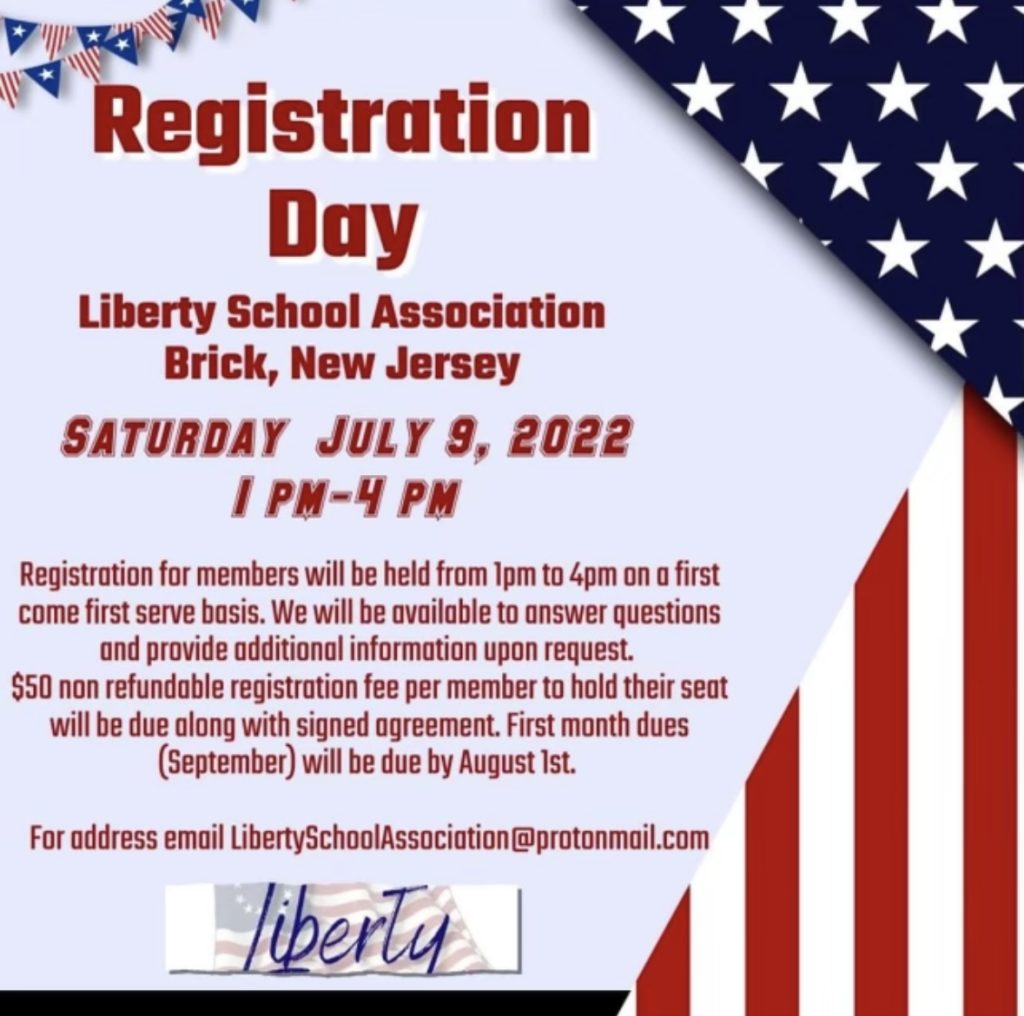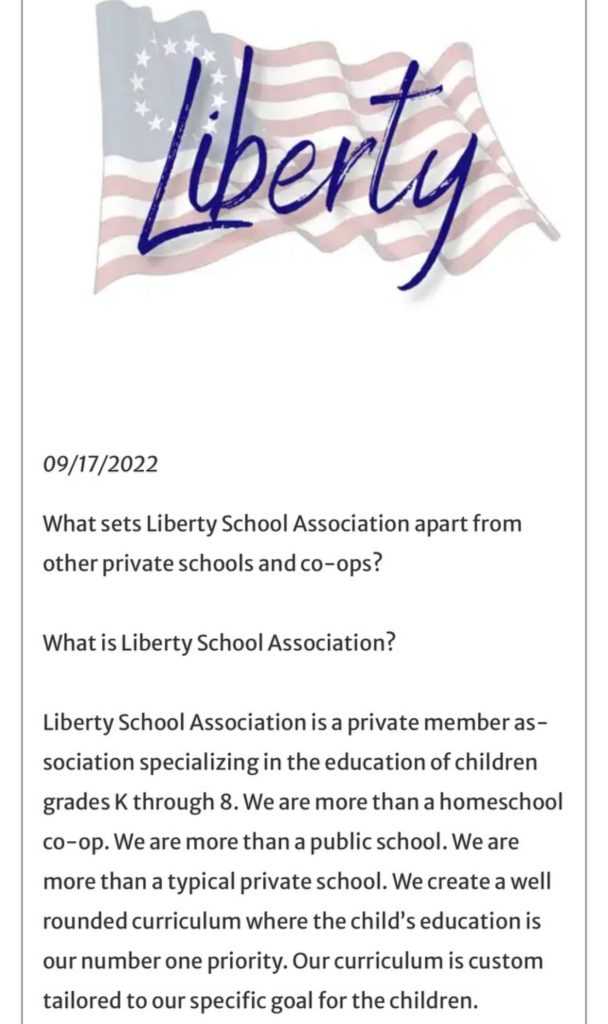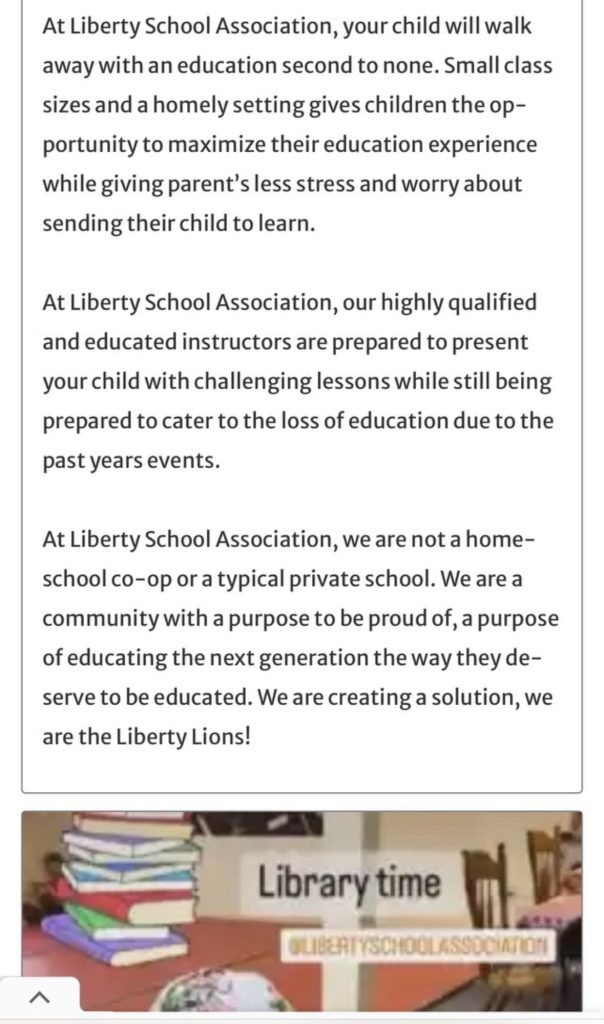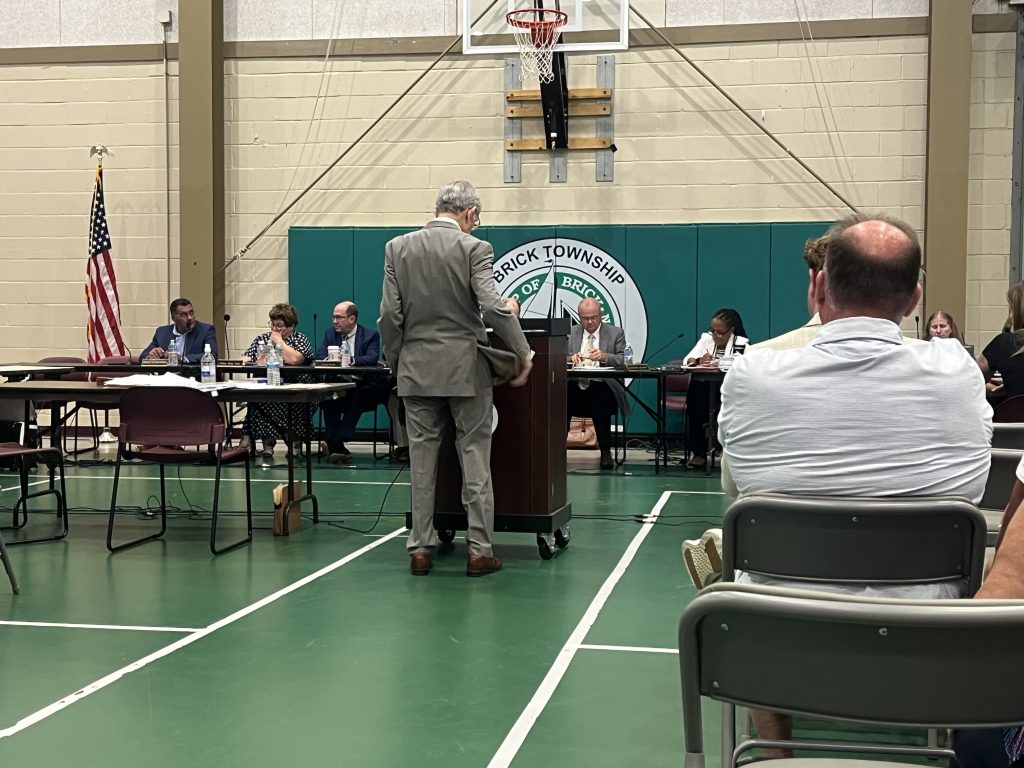
Testimony in front of the Brick Township Zoning Board of Adjustment in the matter of the Liberty School Association. (Supplied Photo)
A proposal to utilize an existing church in a residential neighborhood to house a facility that would allow home-schooled children to learn communally continues to face significant objections from residents, and the case will not be heard before the township’s zoning board again until October.
The Liberty School Association, created by Rebeka Snegon, a township resident who had previously attempted to house the facility elsewhere without obtaining zoning approval, would operate out of the Fellowship Chapel of the Jersey Shore, located at 170 Duchess Lane. The church property is surrounded by blocks of residential homes, leading neighbors to object to the proposal out of fear not only of additional traffic and activity in their neighborhood, but the potential for a school use to be permanently approved for the building. In theory, a significantly larger school could open in the space should the building be sold to a new owner in the future with little in the way of legal hurdles.
The basic land use questions regarding the school were largely secondary at a meeting last week to a lengthy discussion as to what, exactly, the Liberty School Association is. It is billed as a “private membership association,” however board members and professionals at the hearing seemed unclear as to what type of facility they were being asked to approve.
|
|
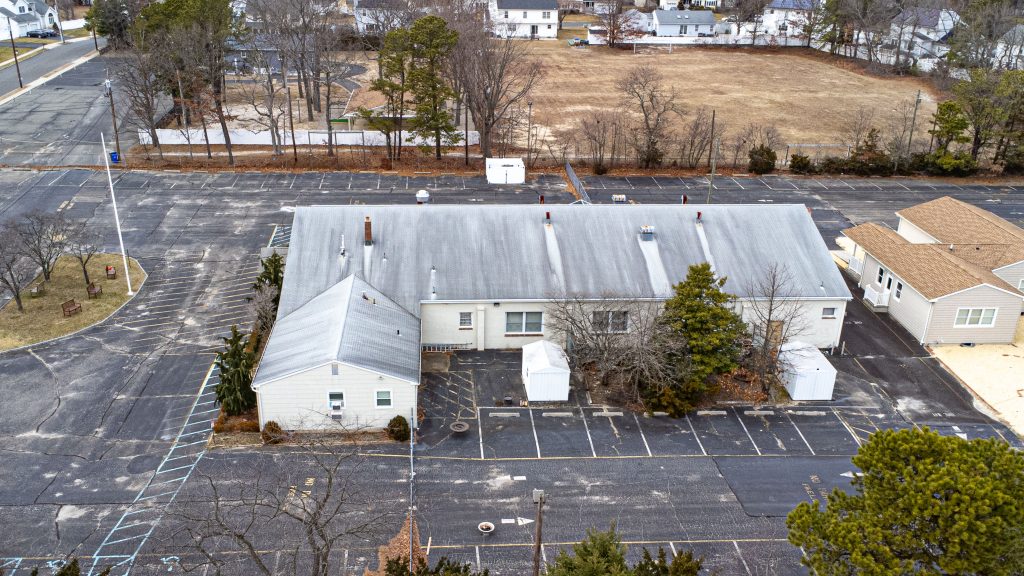
Fellowship Chapel, the site of a proposed school, at 170 Duchess Lane, Brick, N.J. (Photo: Shorebeat)
Board Attorney Ronald Cucchiaro explained that private schools, religious schools, child care facilities and home-schooling all come with varying levels of regulation in New Jersey. While some school facilities require nurses, physical building features and certain licensed personnel to operate, home schooling is largely unregulated in the Garden State. Religious schools may fall somewhere in between, having to guarantee student safety but not subject to the same requirements as a non-religious private school. Home schooling, meanwhile, traditionally takes place in a residential home, while the Liberty School Association is seeking to operate out of a permanent location and has historically charged tuition.
Snegon has wavered on the issue of tuition, and in previous documents never mentioned a religious component. At last week’s hearing, however, Snegon testified before board members that the school follows a curriculum known as “The Good and the Beautiful” that can be formally purchased online, and incorporates Christian values into the school day.
“You don’t plan to be registered as a school, and the testimony that was provided earlier wasn’t really a plan – has that changed?” Cucchiaro asked.
Snegon first testified that the school – termed a “home schooling cooperative” – would not charge tuition to its estimated 30 to 40 students whose ages range from kindergarten to eighth grade. But attorney Edward Liston, representing the neighboring homeowners, proffered a flyer from the 2022 school year with a tuition schedule and instructions indicating it was a “non-refundable fee” that was “due along with a signed agreement.”
Shorebeat has obtained a copy of that flyer and it is embedded below. More confusing, another document from Sept. 2022 (also embedded below) states that Liberty School Association is “not a home-school co-op or a typical private school.” It also touts “highly educated instructors.” The association’s attorney would later tell board members, however, that the school does not employ any staff members.
Snegon testified that she earned a degree in forensic psychology from Southern New Hampshire University, but did not recall the year she graduated. She also testified that she had begun to study for a doctoral degree, but briefly forgot the name of the school she attended before referencing an online-based college.
“I believe it was Capella University – it was an online school – it was a lot of work and there just wasn’t enough time with three children and working full time,” she said, under questioning from Liston.
The question as to whether Liberty School Association would need to comply with private school or home-school regulations drifted into a discussion on tuition – a potential factor that could help determine the school’s status – with representatives struggling to explain the concept. When asked if the school charged tuition, Snegon said some parents historically paid tuition and others did not, contrary to the requirement in the 2022 flyer. She said the school should not be judged based on requirements from 2022.
“If we want to play with linguistics, I guess we could use that word, but it was not a forced requirement,” she said of the concept of tuition. “There was a suggested amount, but not everybody paid the same amount.”
Snegon testified that some parents taught classes, others provided curriculum materials and other supported the association financially.
“It costs money to run this,” she said. “Of course the parents need to contribute. Some just choose to contribute financially.”
Snegon said she intended to run the school based on New Jersey’s requirements for home-schooling, which are minimal.
“Now that we’re facing conditions at the site, those would obviously create different situations than we had back then,” she said, in reference to the 2022 flyer.
The Liberty School Association will rely on parents to teach students in a group setting rather than in their own homes, she added.
“Moms don’t spontaneously grow more arms when they have children, they need help,” said Snegon. “So this was a way for parents who have multiple children to get that help, and the kids liked it. They liked being together.”
“In my personal opinion, I didn’t feel that sending my kids to public school was an option,” she further explained. “Having them home all day wasn’t fun for them, and there were other families who felt the same. We’re volunteers. We don’t draw paychecks.”
Snegon also said that in addition to exemptions carved out for home-schooling, her association should be exempt from regulations that child care centers must follow in New Jersey. One of the exemptions under New Jersey state law applies to “centers for primarily religious instruction.”
Cucchiaro, the board attorney, said that if the facility was to be considered a home school cooperative, which is contemplated in state statutes, the traditional home-schooling policies would prevail.
“Unlike a private school or a public school, the state does not require that any [home school] teachers have any license or have any particular qualifications or background in order to be eligible to teach the students,” he said.
After hours of testimony, the issue was ultimately left up to board members to decide based on the exhibits presented to them, combined with the testimony.
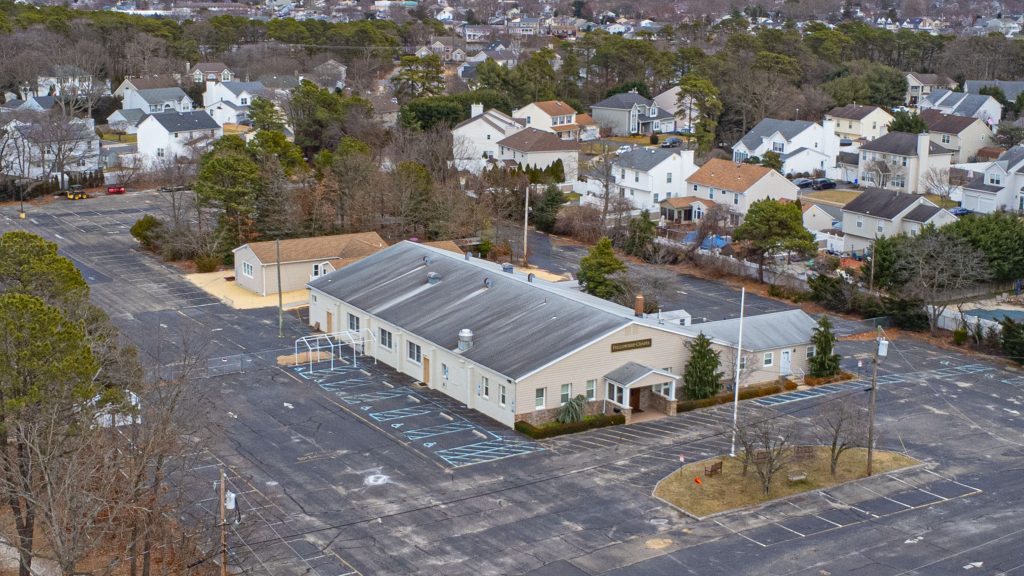
Fellowship Chapel, the site of a proposed school, at 170 Duchess Lane, Brick, N.J. (Photo: Shorebeat)
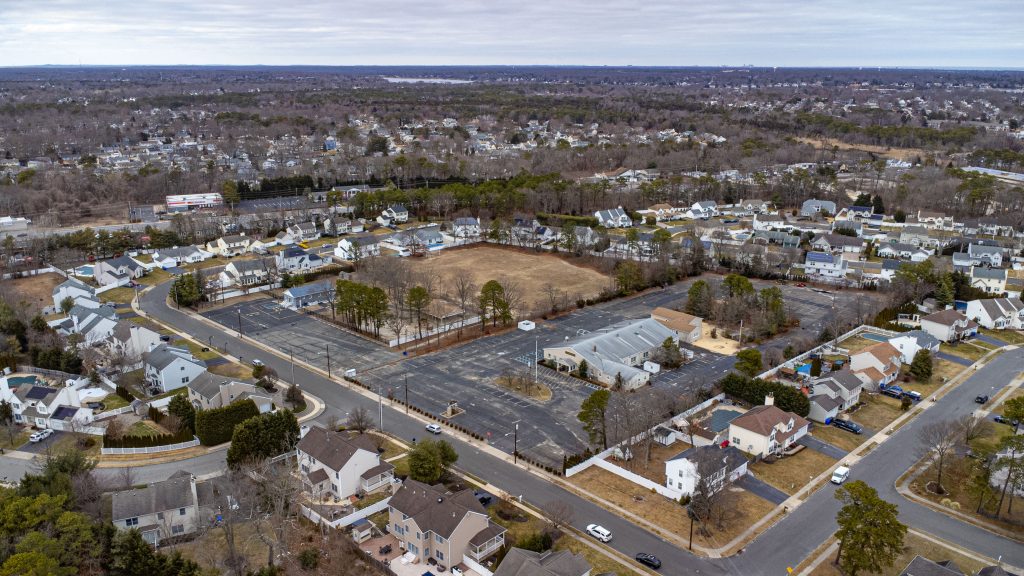
Fellowship Chapel, the site of a proposed school, at 170 Duchess Lane, Brick, N.J. (Photo: Shorebeat)
A planner hired by Liberty School Association would later testify that such a facility is an inherently beneficial use pursuant to New Jersey’s Municipal Land Use Law, meaning in order for the application to be denied, board members would have to find the facility would create a “substantial detriment” to the community.
“There are no impacts that you typically find with land development that are negative,” he said.
The hearing will continue Oct. 1, 2024 at Civic Plaza, 270 Chambers Bridge Road, at 7 p.m. The hearing is being held at Civic Plaza due to the large size of the facility, which is required due to the level of public interest in the application.

